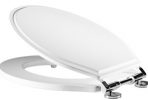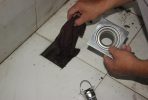The dos and don’ts of faucet installation
The dos and don’ts of faucet installation
Installing a new faucet can be a relatively simple process that can significantly improve the functionality and appearance of your kitchen or bathroom sink. However, it’s important to follow the proper installation techniques to ensure a smooth installation process and prevent potential problems down the line. Here are some dos and don’ts to keep in mind when installing a faucet.
Do: Turn Off the Water Supply
Before beginning any installation process, it’s important to turn off the water supply. This will prevent any water from flowing through the pipes and ensure a safe and dry installation process.
Don’t: Use Excessive Force
When installing a faucet, it’s important to use the correct tools and apply the appropriate amount of force. Using too much force can cause damage to the faucet, sink, or plumbing connections, leading to leaks and other issues.
Do: Follow the Manufacturer’s Instructions
Each faucet has its own installation instructions and requirements. Be sure to carefully read and follow the manufacturer’s instructions to ensure a proper installation.
Don’t: Overtighten Connections
While it’s important to ensure a secure connection, overtightening can cause damage and leaks. Follow the manufacturer’s recommended torque specifications for each connection.
Do: Use Thread Sealant
Thread sealant can help prevent leaks by providing a tight seal between connections. Be sure to use the appropriate thread sealant for your faucet and follow the manufacturer’s instructions for application.
Don’t: Overlook Water Pressure
While installing a new faucet, it’s important to consider the water pressure in your home. A high-pressure faucet installed in a home with low water pressure can cause issues and vice versa.
Do: Test for Leaks
After completing the installation process, it’s important to test for leaks. Turn on the water supply and run the faucet to check for any leaks or drips.
By following these dos and don’ts of faucet installation, you can ensure a smooth and successful installation process. If you are unsure about any aspect of the installation process, consult a professional plumber to ensure a proper and safe installation.






